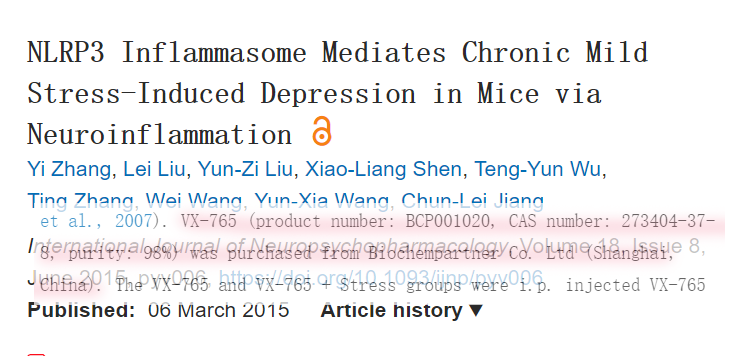NLRP3 Inflammasome Mediates Chronic Mild Stress-Induced Depression in Mice via Neuroinflammation

Abstract Background: Evidence from both clinical and experimental research indicates that the immune-brain interaction plays a pivotal role in the pathophysiology of depression. A multi-protein complex of the innate immune system, the NLRP3 inflammasome regulates cleavage and secretion of proinflammatory cytokine interleukin-1β. The inflammasome detects various pathogen-associated molecule patterns and damage-associated molecule patterns, which then leads to a series of immune-inflammatory reactions. Methods: To explore the role of inflammasome activation in the underlying biological mechanisms of depression, we established a mouse model of depression with unpredictable chronic mild stress. Results: Mice subjected to chronic mild stress for 4 weeks had significantly higher serum corticosterone levels, serum interleukin-1β levels, and hippocampal active interleukin-1β protein levels. They also displayed depressive-like symptoms, including decreased sucrose preference and increased immobility time. Moreover, the hippocampi of chronic mild stress-exposed mice had significantly higher activity of caspase-1, which accompanied by higher protein levels of NLRP3 and the apoptotic speck-containing protein with a card. Pretreatment with the NLRP3 inflammasome inhibitor VX-765 decreased serum and hippocampal levels of interleukin-1β protein and significantly moderated the depressive-like behaviors induced by chronic mild stress. Conclusions: These data suggest the NLRP3 inflammasome mediates stress-induced depression via immune activation. Future procedures targeting the NLRP3 inflammasome may have promising effects in the prevention and treatment of depression.




